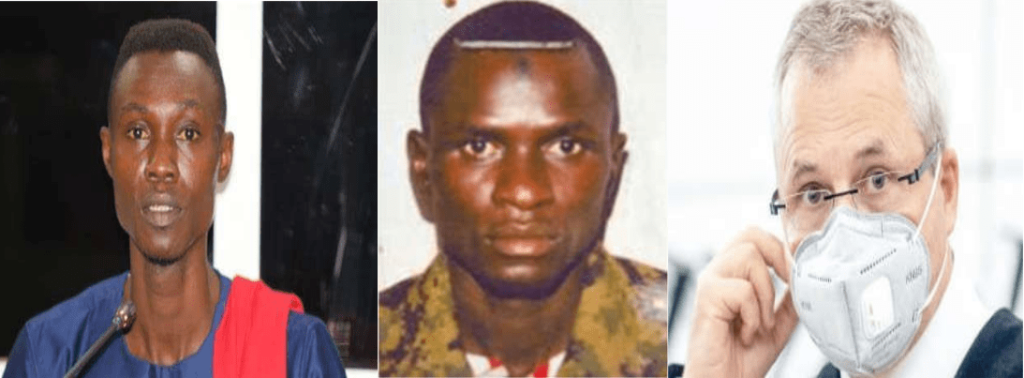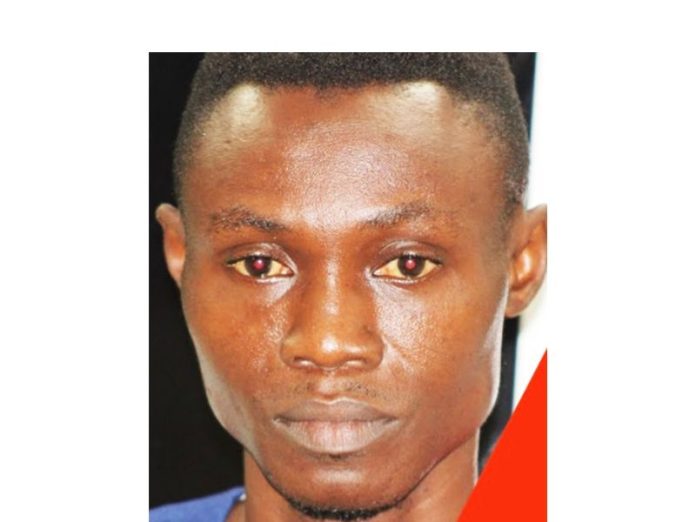A Ghanaian survivor of the massacre of some 59 West African migrants in The Gambia in July 2005 will testify before a German court on January 19, ANEKED, Human Rights Watch, the International Commission of Jurists, the Solo Sandeng Foundation, and TRIAL International said on Thursday.

The death squad which carried out the kilings was allegedly set up by the now exiled Jammeh.
The trial is of Bai Lowe who was allegedly involved in the killings.
Along with a group of other West African citizens, including from Ghana, Nigeria, Senegal, Ivory Coast, and Togo, Martin Kyere, the Ghanaian who will testify, was arrested by Gambian security forces in the coastal town of Barra in July 2005.
He was among over 50 migrants apparently suspected of plotting a coup against Jammeh who allegedly ordered the junglers to mow down the migrants.
Only Kyere managed to escape, and he has since been rallying for the victims’ families and demanding justice.
“Myself and all the families of the victims are praying every day for the perpetrators of the 2005 massacre to be brought to justice” said Oduro Mensah, brother of a Ghanaian victim of the massacre.
“Martin’s testimony is very important because it will contribute to shedding light on the events that took my brother away from me.”
In March 2021, German authorities arrested Bai L., an alleged member of the Junglers who was living in Hannover.
His trial began on April 25, 2022, and is expected to come to a close soon.
This is the first trial based on universal jurisdiction judging atrocities thought to have been committed during Jammeh’s rule.
Another alleged Jungler, Michael Correa was in June 2020 indicted in the United States where he faces charges of torturing detainees following an attempted coup in The Gambia in 2006.
In Switzerland, an investigation against former Interior Minister Ousman Sonko for crimes against humanity has been ongoing since his arrest there in 2017.
This trial of Bai L. is possible because Germany recognizes universal jurisdiction over certain serious crimes under international law, allowing for the investigation and prosecution of these crimes no matter where they were committed, and regardless of the nationality of the suspects or victims.
German prosecutors accused Bai L as a Jungler, of driving his accomplices to various crime scenes between December 2003 and December 2006.
He is accused of involvement in the murders of Deyda Hydara, a journalist and cofounder of the Gambian newspaper, the Point, Dawda Nyassi, a perceived opponent of Mr Jammeh and the attempted murder of Ousman Sillah, a lawyer.
In its final report The Gambia’s truth commission (TRRC) called for Bai L.’s prosecution in connection with the Hydara and Sillah cases, as well as in the murder of the West African migrants in 2005.
Bai L. himself provided details about these events in interviews he gave to online radios in 2013 and 2014.
In October 2022, Bai Lowe gave a statement for the first time since the beginning of his trial, in which he asserted that the details shared on these murders during the 2013 and 2014 interviews were based on elements narrated to him by others, and that he had not been part of the Junglers.
Other witnesses who testified thus far included German investigators, former Gambian soldiers, the German asylum judge who interviewed Bai Lowe and Ida Jagne and Nian Sarang Jobe who were both passengers in the car Deyda Hydara was driving when he was killed.
Pap Saine, cofounder with Deyda Hydara of the Point newspaper; as well as journalist Baba Hydara son of the slain Deyda Hydara, Fatou Sillah, daughter of Ousman Sillah; and Omar Nyassi, son of Dawda Nyassi, also testified.
Dr. Peer Stolle, Kyere’s lawyer, said that: “Martin Kyere’s testimony is very important for the trial, because he is the sole known witness who survived the massacre.
His statement will illustrate once again the widespread nature of the attack against the civilian population as ordered by President Jammeh and executed by the Junglers.”
Jammeh’s 22-year rule was marked by systematic oppression and widespread human rights violations, including torture, extrajudicial killings, enforced disappearances, and sexual violence against actual and perceived opponent, according to testimonies.
Although the killing of the migrants is one of the deadliest atrocities committed during Jammeh’s regime, their families are still waiting for justice and accountability. Kyere’s tireless commitment to truth and justice led him to travel across his native Ghana to find the families of the people who had travelled with him, which shed light on the massacre.
Jammeh-era officials allegedly obstructed past attempts to investigate the massacre, including the joint investigation by the United Nations and the Economic Community of West African States (ECOWAS) in 2008.
The “Jammeh2Justice” campaign, made up of victims of the former regime and Gambian and international activists, has said that the government should take concrete steps to bring Jammeh and his accomplices to justice.
Gambia’s attorney general Dawda Jallow and ECOWAS President Omar Touray recently began talks about creating a hybrid court “for the prosecution of human rights violations by and under former President Jammeh.”
The Adama Barrow administration also announced plans to create a special prosecutor’s office to prepare evidence for trial.


